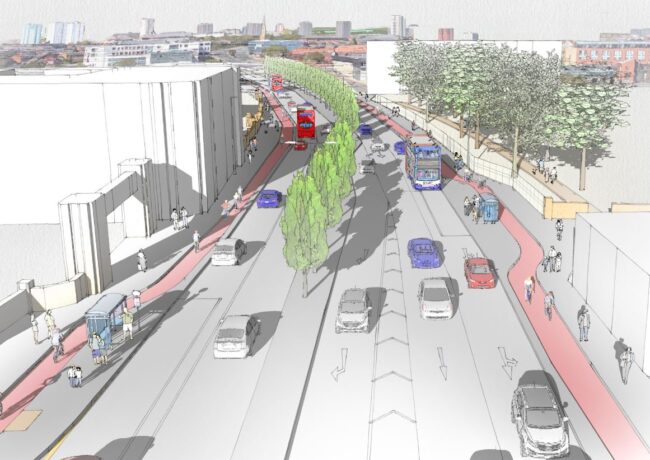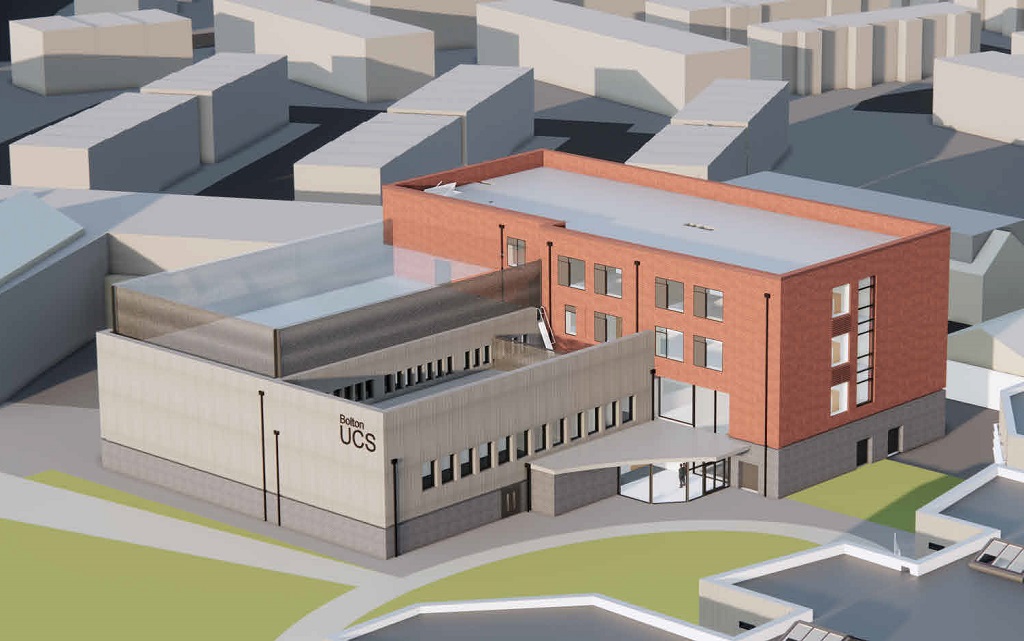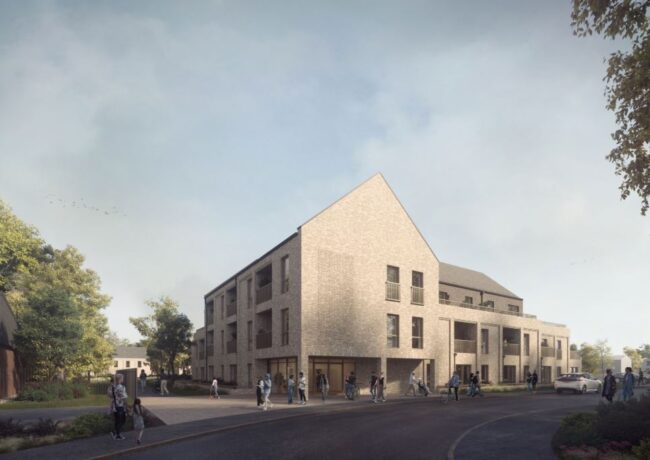Additional schemes proposed for £1.5bn Bee Network
The Greater Manchester Combined Authority has put forward plans for an additional 25 schemes to improve walking and cycling routes across the City Region, bringing the total number of projects to 82, at a cost of £493m.
According to the GMCA, the projects identified so far make up a third of the overall Bee Network plan, which is set to reach £1.5bn of investment.
Tranche Six of the project attracted 37 applications, of which 25 were approved for programme entry. All of them are recommended for approval at the latest GMCA meeting, at a cost around £154m.
The successful projects include:
- Two schemes in Bolton, the £5.8m Westhoughton Bee Network and the £9m Astley Bridge in Crompton
- Three schemes in Elton, Pimhole, and Radcliffe central in Bury which total £6.9m
- Two in GM, including £13.5m for Bee Network Crossings, and £4.3m for National Cycle Network upgrades
- Three in Manchester, the £5.7m Manchester Cycleway, £12.9m for Oldham Road, and £1.4m for Beswick Filtered Neighbourhood
- Seven in Oldham, which total £19.8m, including £11.1m for Oldham town centre improvements
- One scheme in Rochdale, including the links between Rochdale, Manchester and Oldham at £29.4m
- In Salford, there is one scheme for the as yet undescribed Salford Innovation Triangle at £19.9m
- Three in Stockport, made up of £3.2m for Heatons WRH, £3.9m for Romiley neighbourhood and links, and Thomson Street bridge
- The one improvement in Tameside is the £2.2m A57 Denton to Hyde
- The final two are in Trafford, which are the £4.4m North Altrincham Bee Network, and £7.9m Seymour Grove
In March last year, the GMCA agreed to allocate £160m from the Transforming Cities Fund to develop a Mayor’s Cycling & Walking Challenge Fund. This fund is being used to deliver the first phase of the Bee Network.
The Bee Network, once complete, will cover 1,800 miles. Tranches one to five of the Mayor’s Cycling & Walking Challenge fund cost £217.7m, excluding programme management costs, design costs.Ongoing schemes include the £20m Trafford Road cycleway, linking MediaCityUK, Salford Quays, Ordsall and Old Trafford.
A report exploring the potential of a Greater Manchester bike hire scheme is also being put forward for consideration by the Combined Authority later today, however details are excluded due to “commercially sensitive” information.
Salford and Bolton road improvements also set for sign-off
Mayor Andy Burnham and Eamonn Boylan, chief executive of the GMCA, have also put forward proposals for the improvements to the A666 and A6 in Salford, and Bury Road and Crompton Way in Bolton, for sign-off at the GMCA meeting.
The work in Salford consists of junction upgrades, bus priority measures and cycling and walking enhancements on the A666 and A6. The schemes would be backed by £3.98m from the Local Growth Deal and Mayor’s Fund.
The Salford scheme includes three sections of bus lane on the Manchester-bound side of Bolton Road between the M60 off-slip at Junction 16 on the M60 and the Irlam o’th Height roundabout; the reconfiguration of on-highway parking arrangements on Bolton Road; a junction improvement scheme at Broad Street and Frederick Road with the inclusion of a buys only link between Broad Street and Belvedere Road, and segregated signalled crossings for cyclists; and the provision of a pedestrian crossing on the A6 adjacent to Salford Crescent.
Salford City Council would be responsible for managing the works with project management support from TfGM.
The Bolton upgrades are a collection of junction improvements close to Bolton town centre. The scheme includes the implementation of two cycle signal junctions at the Manchester Road, Bradshawgate, and Trinity Street, and at Newport Street and Trinity Street. The scheme also includes capacity improvements at adjacent A666 and St Peters Way and Bury Road and Crompton Way junctions.
According to the request, the work would “deliver accessibility benefits for all users through the provision of adequate footway widths, the implementation of controlled crossings, the provision of accessible boarding facilities and the delivery of segregated cycling routes at a number of junctions. They will also enhance bus priority which should improve the punctuality and reliability of bus services along routes local to the improvements, thereby supporting bus passengers, many of whom do not have access to a private car.”




